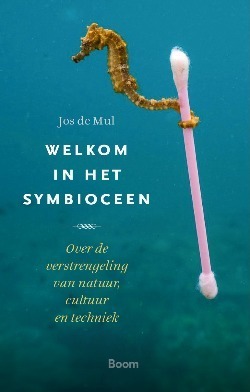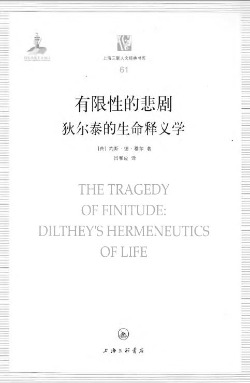De domesticatie van het noodlot
Jos de Mul. De domesticatie van het noodlot, in: P. van Tongeren (red.), Het lot in eigen hand, Baarn: Gooi en Sticht, 34-57.
Wireless Imagination
Jos de Mul. Wireless Imagination. In: H. Holtappels en E. Maliankay (red.), Lost Bounderies. Segregation and Integration of Art in a Decentralized World, CD-ROM Stroom hcbk/Creative Disk, Den Haag 1995, 12 p.
Wireless Imagination. A Virtual Look in the Future of the Visual Arts
Jos de Mul. Wireless Imagination. A Virtual Look in the Future of the Visual Arts. In: Liubava Moreva and Igor Yevlampiev (eds.),Paradigms of Philosophizing. Second International Conference on Philosophy and Culture, St. Petersburg 1995, 246-252.
Het meervoudige zelf. Identiteit in het digitale tijdperk / The Multiple Self: Identity in the Digital Era
Jos de Mul. Het meervoudige zelf. Identiteit in het digitale tijdperk / The Multiple Self: Identity in the Digital Era. In: Frank Hoenjet en Theun Kohlbeck (red.), Everybody's Talking. Visies van hedendaagse kunstenaars op communicatie / Views of Contemporary Artists on Communication, Helmond 1996, 22-36
Het meervoudige zelf. Identiteit in het digitale tijdperk / The Multiple Self: Identity in the Digital Era
Jos de Mul. Het meervoudige zelf. Identiteit in het digitale tijdperk / The Multiple Self: Identity in the Digital Era. In: Frank Hoenjet en Theun Kohlbeck (red.), Everybody's Talking. Visies van hedendaagse kunstenaars op communicatie / Views of Contemporary Artists on Communication, Helmond 1996, 22-36
Poet after the Death of God
Jos de Mul. Poet after the Death of God. In: I. van der Cruysse en W. Shetter (red.), Contemporary Explorations in the Culture of the Low Countries, Vol. 9. Lanham, MD: University Press of America, 1996, 49-69.
Inleiding. In: Schelling, Filosofie van de kunst
Jos de Mul. Inleiding. In: Schelling, Filosofie van de kunst. Amsterdam: Boom, 1996, 7-53.
Inleiding
 Friedrich Wilhelm Joseph Schelling (1775-1854) behoort met Johann Gottlieb Fichte en Georg Wilhelm Friedrich Hegel tot de belangrijkste vertegenwoordigers van het Duitse idealisme. Ofschoon de hoogtijdagen van deze filosofische beweging aan de Duitse universiteiten in feite reeds met de dood van Hegel in 1831 werden afgesloten, is de invloed die het idealisme heeft uitgeoefend op de moderne continentale en - in mindere mate en vooral als metafysisch contrapunt - de angelsaksische wijsbegeerte tot op heden moeilijk te overschatten. Negentiende- en twintigste-eeuwse stromingen als hermeneutiek, marxisme, fenomenologie, existentialisme en differentiedenken zijn niet goed denkbaar zonder de door de idealisten begonnen 'Odyssee van de geest'.
Friedrich Wilhelm Joseph Schelling (1775-1854) behoort met Johann Gottlieb Fichte en Georg Wilhelm Friedrich Hegel tot de belangrijkste vertegenwoordigers van het Duitse idealisme. Ofschoon de hoogtijdagen van deze filosofische beweging aan de Duitse universiteiten in feite reeds met de dood van Hegel in 1831 werden afgesloten, is de invloed die het idealisme heeft uitgeoefend op de moderne continentale en - in mindere mate en vooral als metafysisch contrapunt - de angelsaksische wijsbegeerte tot op heden moeilijk te overschatten. Negentiende- en twintigste-eeuwse stromingen als hermeneutiek, marxisme, fenomenologie, existentialisme en differentiedenken zijn niet goed denkbaar zonder de door de idealisten begonnen 'Odyssee van de geest'.
In de historische overzichten van het Duitse idealisme wordt Schelling vaak opgevoerd als de verbindende schakel tussen Fichte en Hegel. Volgens deze, door laatstgenoemde geïntroduceerde opvatting, vertegenwoordigt Fichte met zijn filosofie waarin het Ik centraal staat het subjectieve idealisme, Schelling met zijn natuurfilosofie het objectieve idealisme, en brengt Hegel beide posities tot een hogere synthese in zijn absolute idealisme. Het probleem met deze indeling is dat zij hoogstens opgaat voor een bepaalde fase in het denken van Schelling, om precies te zijn voor de jaren 1797-1799, waarin hij een reeks natuurfilosofische geschriften publiceert. De gehele verdere ontwikkeling van Schellings denken, die ruim vijf decennia beslaat, blijft in deze indeling noodgedwongen buiten beschouwing.




 Vanaf de derde druk verschijnt
Vanaf de derde druk verschijnt 





